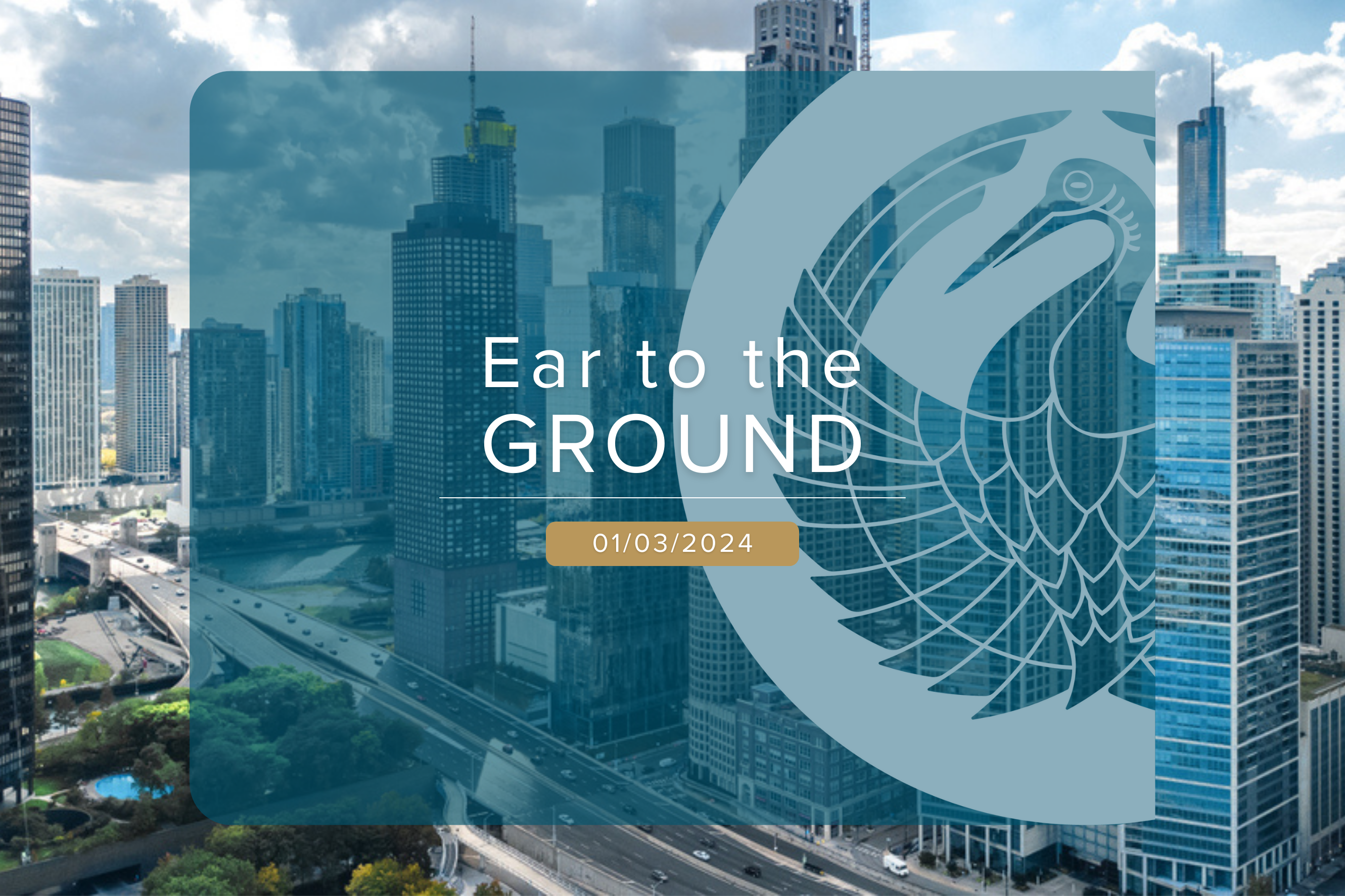Ear to the ground
01 March 2024

Very little economic data out of the UK this week, with the Nationwide House Price Index the only real topic of discussion. Year on year, we saw the first increase in the last 12 months, rising 1.2%. This was ahead of consensus forecast. Falling mortgage costs around December may have prompted this, but we have seen only in the last few weeks lenders hiking their rates yet again. This may have a negative, or dampening effect on the housing market moving forward. Not directly linked, but certainly indirectly, just this week my credit card provider has took the decision to increase their APR from 9.99% to 14.99%. If others are following suit, this will undoubtedly cause a little bit of nervousness amongst the consumer.
In the US, meanwhile, we had the release of PCE (Personal Consumption Expenditures) inflation. Year on year to January this increased by 2.4%, lower than the previous reading of 2.6%. Core PCE, which is the US Federal Reserve’s preferred measure, which excludes food and energy, rose 2.8%. This was in line with consensus forecast and lower than the previous reading of 2.9%. There was a month on month rise of 0.4%, but this was very much in line with expectations. The last leg down towards the 2% preferred level will perhaps prove that most difficult.
Also out this week was the release of the US ISM Manufacturing PMI (Purchasing Managers Index). To February this came out a disappointing reading of 47.8, with, as a reminder, a figure below 50 representing contraction. Not only was this figure lower than January’s figure of 49.1, but it was also some way below the forecast of 49.5. There was weakness in new orders placed and lower production levels. Not good news for the sector.
In the UK, US and EU region the hope is of course for the next move in interest to be down. Whilst the level of cuts expected this year is slowly but surely being reigned in after December’s excitement, it is in that direction all the same. Admittedly, there are one or two talking about the prospect of no rate cuts from the US in particular in 2024. Spare a thought for those borrowers in Nigeria, however, who this week saw their base rate increase to an eye watering level of 22.75%, from an already high rate of 18.75%. Now it was the first time they had met since mid-2023, so you could perhaps argue that they had some work to do. However, 4% in one movement is large by any stretch of the imagination. With inflation running at 29.9% and the currency having fallen almost 70% this year alone, you would struggle to argue that action wasn’t justified.
This article is for information purposes only and should not be construed as advice. We strongly suggest you seek independent financial advice prior to taking any course of action.
The value of this investment can fall as well as rise and investors may get back less than they originally invested. Past performance is not necessarily a guide to future performance.
The Fund is suitable for investors who are seeking to achieve long term capital growth.
The tax treatment of investments depends on the individual circumstances of each client and may be subject to change in the future. The above is in relation to a UK domiciled investor only and would be different for those domiciled outside the UK. We strongly suggest you seek independent tax advice prior to taking any course of action.
Subscribe Today
To receive exclusive fund notifications straight into your inbox, please complete this form.